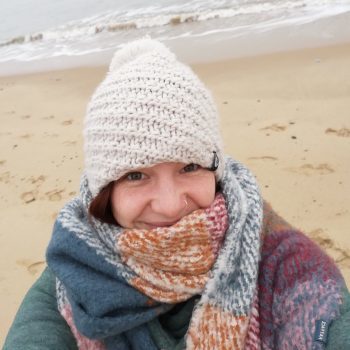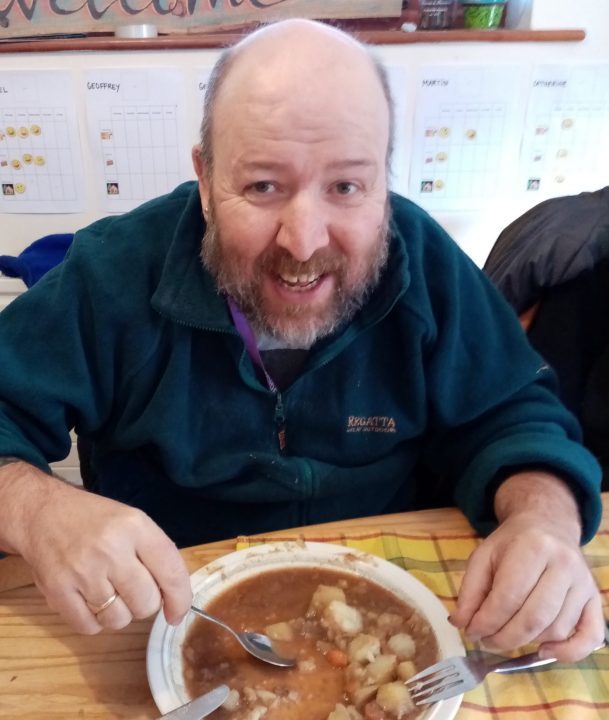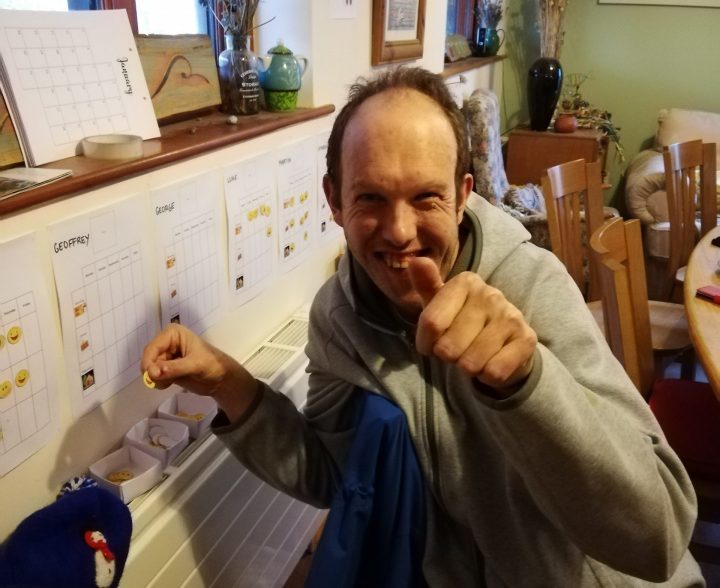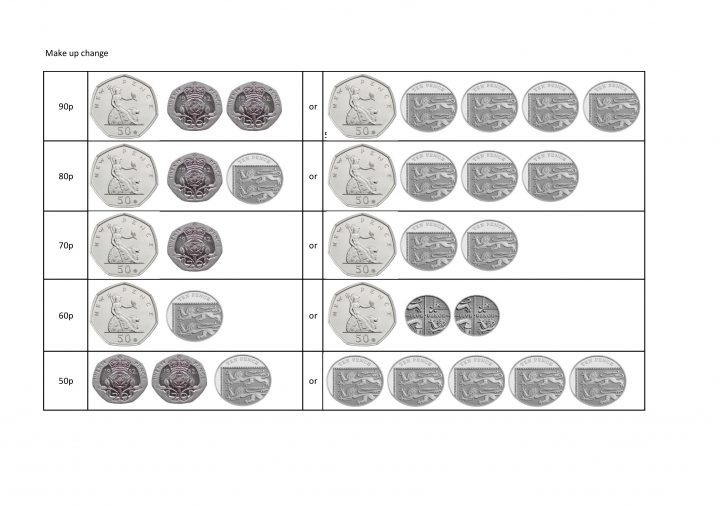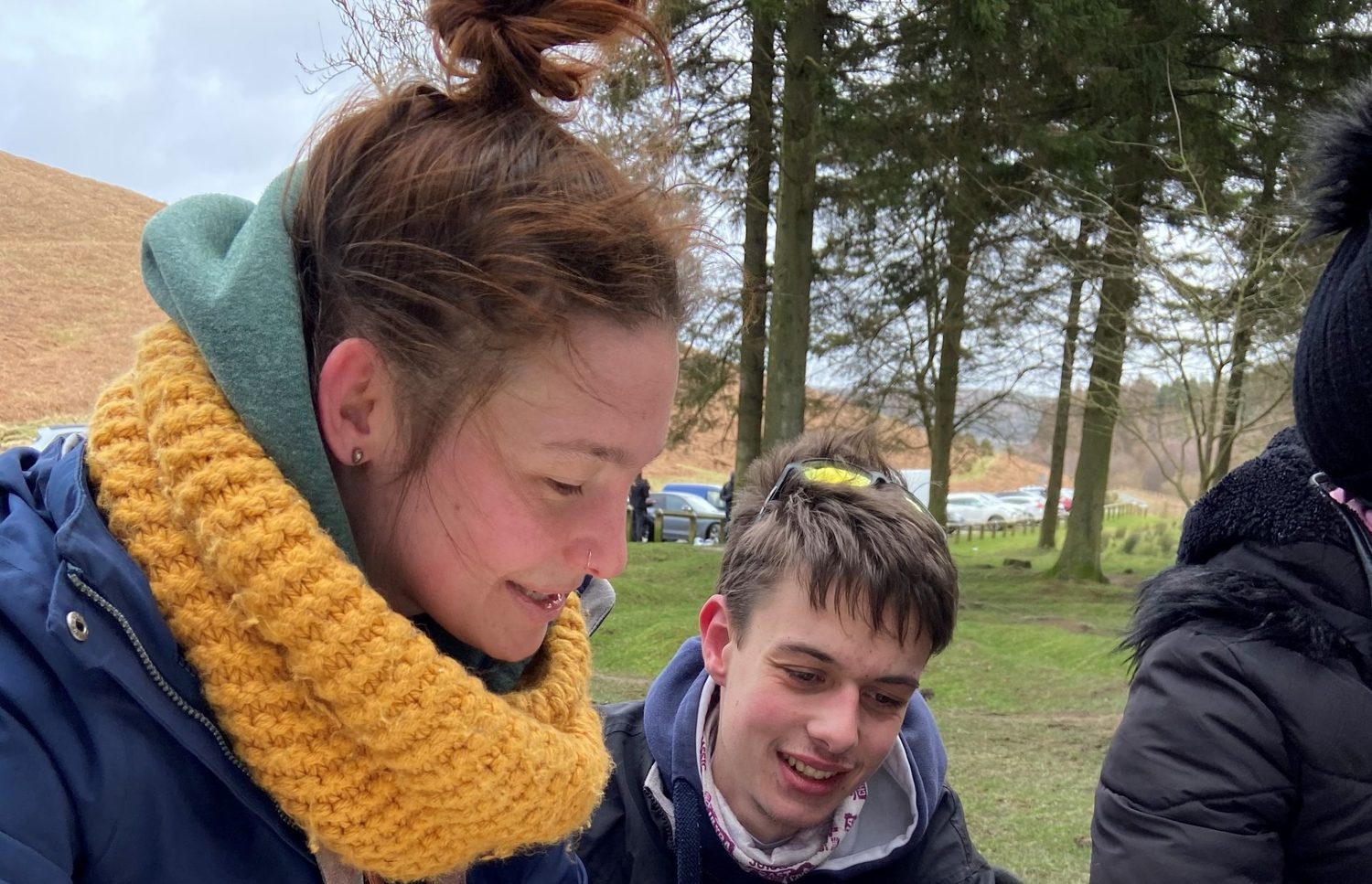Monday – Hello from Pauline
A big hello to everyone! My name is Pauline and I am an MSc student Occupational Therapist from the University of East Anglia in Norfolk. About three weeks ago, I came all the way from the South East coast to beautiful North Yorkshire to join the lovely Botton Social Farm team, as part of my final placement before graduating as an Occupational Therapist. I couldn’t wait to start and, so far, this experience has not let me down!
Every day on the farm brings something different and a variety of opportunities for me to promote the benefits of Occupational Therapy. Here, people learn new skills all the time. Today, our team helped moving calves from one of our sites to another. Everyone who was involved had done this before. But you can imagine that animals are unpredictable and that each experience is therefore unique. Our team learn to be flexible and adaptable, which is not always easy for everyone. They also are reminded of rules around safety and how to look after the animals. Luckily, everything went well today and the calves are happy in their new home with their new friends!
Tuesday – It’s Pancake Day
Pancake Tuesday! Who does not love pancakes? After a day of hard work on the farm, our team enjoyed making and eating well-deserved pancakes with their favourite toppings.
But what is a day like on the farm? One of the important jobs is to look after the cows, especially feed them. Hay is their favourite food when they are kept indoors over the winter. Our team love to unroll the hay bales and give the hay to the cows. This gives them a sense of responsibility and encourages them to use many executive function skills such as planning and sequencing, i.e. completing an activity from start to finish in the right order. Carrying out this task everyday day contributes toward giving the trainees a chance to develop the ability to follow and maintain a working day.
To finish the day on a sweet note, our trainees liked to flip some pancakes, not always successfully! You probably think making pancakes is easy. But have you ever thought about how much you do without even noticing it?
First, you need to wash your hands. This requires the sensory experience of wet textures and sequencing steps of water, soap, water, then dry with a towel. Then, you need to read directions, requiring skills of sequencing, initiation, and planning. You also need to access bowls, spoons, and measuring cups as well as ingredients for the task. This requires executive functioning skill of initiation and planning/organisation of materials but also visual perception skills of figure-ground and scanning.
Opening containers calls for fine motor skills and motor planning. Using the measuring cup to scoop the correct amount of flour or milk and dump/pour into the bowl necessitates working memory in order to have the correct amounts based on instructions, motor planning for scooping and dumping/pouring, and sensory modulation of the tactile experience. Mixing the batter with a spoon until it is smooth requires gross motor coordination, grip strength, and execution of the task (ability to stop when completed). And this is only half the job!
Now comes the difficult task of cooking the pancake and why not flipping it! To turn on the cooker and warm up the pan, you need to use your safety awareness, visual perception to locate correct temperature, and fine motor skills to turn knobs. Then, you pour the batter into the pan using a ladle. This requires the use of the tool, execution of pouring correctly sized pancake, motor planning to pour batter into the pan, and tactile processing of sticky batter. Once this is done, you need your critical thinking to determine whether the pancake is ready to be flipped based on visual cues of bubbles in the pancake calling for working memory, visual discrimination, and problem-solving. Serving the pancakes on a plate to others requires social participation, motor coordination, and organization. Well, who would have thought that so many skills go into pancake making?
An Occupational Therapist would work on analysing tasks as described above and adapt some of the steps that might be problematic for an individual to support independence and allow them to carry out activities that are meaningful to them. Isn’t that amazing?
Wednesday – Cooking up a storm
Some of our team members who also live independently in supported living accommodations in Botton Village are very keen to become more and more independent in the hope that one day they can live on their own. Today at the farm, we helped two members of our team, Ashley and Martin, towards that goal by supporting them to cook a beef stew.
Last week, Ashley made a list of some of the things that he would need to organise prior to today’s cooking session. On Tuesday, he went to the butchers and bought some beef. He also went to the food shop to buy some beef stock. He also made a note to remind one of our members of staff to bring a cooking pot the next day as we also were making a veggie stew. Today, Martin joined us with peeling carrots and potatoes, chopping onions and leeks, frying up the meat before the stew was put in the oven. Together, Martin and Ashley cooked a fantastic stew that they shared with everyone at lunchtime. They were highly praised by everyone who tried it! We even had a special guest, Sam from BBC Radio York, who was delighted to be offered to sit down with us and share some delicious food made with homegrown vegetable and meat from the farm.
In the afternoon, we all attended Botton Commons, a meeting where upcoming events are presented and where Botton residents can discuss any topic they consider of importance. Martin was so pleased with the meal he prepared in the morning that he very happily stood up in front of everyone who attended and proudly talked them through the process of cooking his stew. Well done both of you!
The idea now is that for the next few weeks, Ashley and Martin will cook a stew on a Wednesday so that, with some practice, they will be able to cook it on their own from A to Z!
Thursday – Demonstrating a difference
Care farms have been used for many years to provide care and social support. They provide a variety of services including the development of social skills, basic skills, work skills, animal-assisted interventions and horticultural therapy.
The majority of care farms cater for mixed groups of clients including those with learning disabilities, mental health issues and drug and alcohol dependencies, Autism Spectrum Disorder (ASD) and people living with dementia.
One important part of my work whilst on the farm is to demonstrate that social care farming makes a difference in people’s lives. Occupational therapy uses a tool called outcome measures. They can be used to evaluate the effectiveness of interventions and services by identifying whether a change has occurred over time. Here at High Farm, we have started to ask our team to tell us how they feel about coming to the farm in the morning if they have enjoyed their morning and also their afternoon of work. This is done using smiley faces and blue-tac, nothing too out of the ordinary! The idea is that this information is recorded for every trainee on a daily basis and can be used to monitor the satisfaction of the team over the year and demonstrate the benefit of them attending the service.
Here is an example with Daniel showing us how happy he was to come and work with us today!
Friday – What is Occupational therapy?
Happy Friday everyone! I realise that up to now, I haven’t explained what Occupational therapy really is about. Occupational therapy provides practical support to empower people to facilitate recovery and overcome barriers preventing them from doing the activities (or occupations) that matter to them.
This support increases people’s independence and satisfaction in all aspects of life. “Occupation” as a term refers to practical and purposeful activities that allow people to live independently and have a sense of identity. This could be essential day-to-day tasks such as self-care, work or leisure.
An occupational therapist’s job role is to help people of all ages overcome the effects of disability caused by illness, ageing or accident so that they can carry out everyday tasks or occupations. They will consider all of the patient’s needs – physical, psychological, social and environmental. This support can make a real difference giving people a renewed sense of purpose, opening up new horizons, and changing the way they feel about the future.
Today, I supported Daniel to use the till in our Coffee Bar. Through this first assessment, I was able to identify where his difficulties lie and could design some documents to support him in this activity that really matters to him. I will update you with pictures and videos next week on whether the help I designed for Daniel will enable him to independently use the till! Fingers crossed.
Thanks for reading!

